Two months.
Two Prime Ministers.
One Head of State.
Zero opportunity to vote for any of them!
There’s something seriously, seriously wrong with the state of our democracy.
Only one solution:

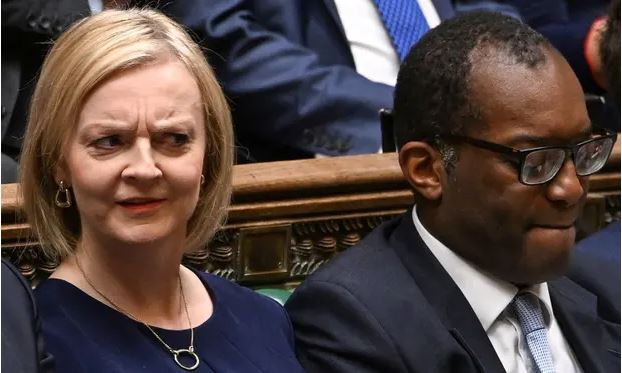
Have you noticed that Truss and her Cabinet colleagues have a new favourite phrase? It goes: “I do not accept the premise of your question.” They use it as a rhetorical ruse when they do not wish to answer a question.
So let’s talk about premises: specifically false premises.
A full 14 years after it imploded spectacularly in 2008, it seems the “old-time religion”, free market fundamentalism, is back in vogue. One of its key ideas is that of “trickle-down” economics, which is dependent on the two false premises of FMF. It is surely tragic that we have allowed our government to regress to such crazy ideas.
At risk of the old adage “I told you so”, I demonstrated, with evidence, in a post seven years ago: Inequality Damages Your Wealth, that so-called trickle-down economics is a myth. There’s a considerable amount of evidence to show that policies now advanced by the Truss government will not increase growth – quite the opposite.
Also from 2015, in a post entitled Two Castles (part 2), I spelled out the false premises upon which Truss’s economic philosophy depends. Truss’s assertions about growth depend on these implicit and false assumptions:
It seems unbelievable that the mistakes of the Thatcher / Reagan era are to be repeated. Unbelievable, but perhaps not unexpected, given that Truss and Kwarteng were two of the co-authors of the notorious book Britannia Unchained, with its assertion about Britain’s “laziest” workers. The book makes clear its authors’ admiration for Thatcher and for those who influenced her thinking: Friedrich Hayek and the novelist Ayn Rand.
So here we are. How long do we have to put up with this return to a failed ideology? (Here’s a view from across the pond.) Perhaps not long, given Truss’s unpopularity in the opinion polls: Tory MPs appear to be spooked by this. Only a week and a half after “normal” politics resumed following the official mourning period, Chancellor Kwateng’s unforced error landed us with a bill of £65 billion to be added to our national debt. How much more damage can they do before we kick them out of office?

Following our return from an eight-day holiday in France, I have been seeking to understand events back in the UK whilst we were away. What follows is my best attempt at understanding what has happened.
So, all in all, our return to our home country feels oppressive. I’m sure I’m not the only one to feel this way.
A reworking of an earlier classic:
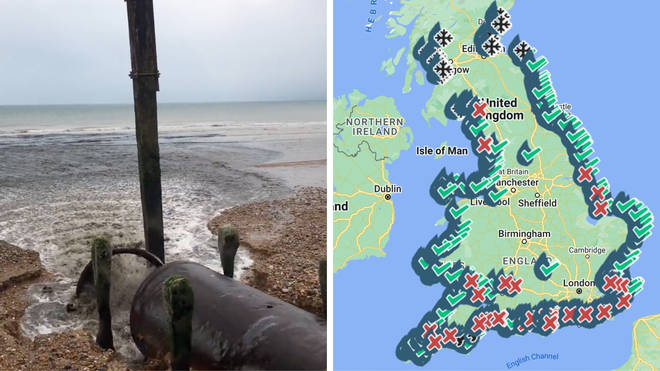
This flush-ed throne of kings, this septic isle,
This earth of dysentery, this seat so foul,
This other Eton; all others cast as nought.
This fortress built by Nature for herself
Doth breed infection, faecal stench and more.
Unhappy breed of men, this little world,
This noxious stone, set in a septic sea
Some wish would serve the office of a wall
Or as a moat defensive to a house,
Against asylum from less happier lands.
This fetid plot, this earth, this realm, this England
This curse, this seeping wound of loyal serfs
Who hold the future leader in their hands
Renowned as bigots, far from the pains of life.
These few, these scrappy few, hold hustings vile
Where two inadequates hold forth,
Lead all to ransom, quake and so to fear
What future holds in days and times to come.
Wild speculators suck up all the gold
Whilst poor and not so poor do fret and ask
To eat, to heat? What will become of us?
Cut taxes! Screams the heir most like
To win, as if this would cure ev’ry ill.
We’ll find, alas too late! This bitter pill
Will make things worse, against our will.
Shall workers all rise up and down their tools
Or new and vicious law ban this as well?
While those from other lands avert their gaze
And realising gone our glory days.
That England, that still yearns to conquer others,
Hath made a foolish conquest of itself.
Ah, would these vandals vanish from my life,
And happier times and wiser counsel rise!
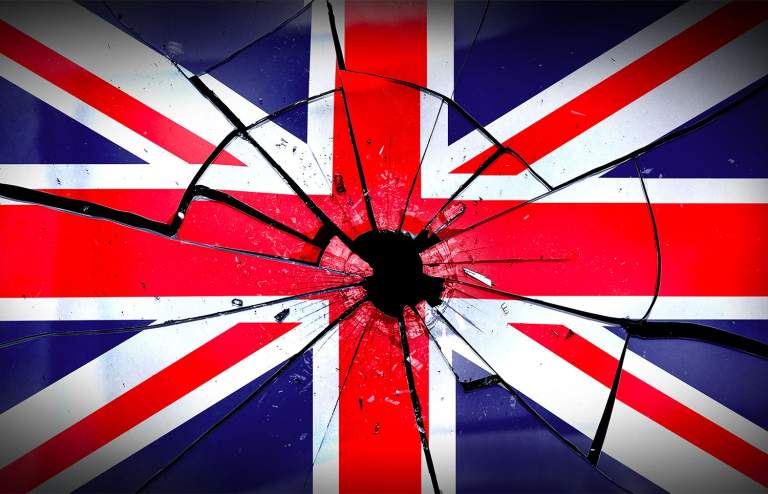
There’s just too much news around right now.
For many weeks, every day we seem to be presented with two or three new stories, each of which would be headline news on a “normal” news day. Examples include:
Over the years since I started, this blog has, at times, resembled a running commentary on the current news headlines. On that basis, the events since December 2019 have just about stunned me into silence. One awful thing after another…
Looking back, my original intention had been something slightly more detached from the day-to-day stuff: something a bit reflective, and also more varied in style and subject matter. I have considered a variety of topics affecting the country: the benefits, or otherwise of a written constitution, the UK splitting into constituent parts, surely now with odds-on departures by Scotland and Northern Ireland, the UK or its parts becoming republics, our voting system, our economic prospects and chances of re-joining the EU. Not much to laugh (or even smile) about in that lot.
But there’s something altogether more urgent: how to extricate ourselves from the continuing disaster of the present “government”? The Johnson Cabal is the most clear and present danger to liberal democracy in the UK.
First, the question of Johnson himself. Will he stay? Will he go – willingly or kicked out? If so, how soon? What would be the final straw? How much further damage can he (and they) do in the meantime? None of this is certain right now. But this much is clear: the UK’s international reputation is at rock bottom, at least since 1956 and Suez: I was much too young to understand what was happening at that time. The bad faith exhibited by the UK government in trade negotiations with the EU alone has shattered any image of this country as a mature, stable democracy. I don’t expect other countries’ leaders to restore their trust in us during my lifetime. It’s a depressing thought.
The Tories, by which I mean principally the Conservative parliamentarians, have changed out of all recognition during my adulthood. Gone are the days of “Butskellism” of the 1950s and early 1960s. There have been two periods of ratcheting the Party in the direction of free market fundamentalism and authoritarianism. The first, in the 1980s, led by Margaret Thatcher and the second since 2019 by Boris Johnson. The party is increasingly divided into cliques, frequently including “Research Group” in their names, each jockeying for the PM’s attention and trying to drag the Party to even further extreme policy positions. For Thatcher, the enemies within were the “wets”. Johnson forced the last remaining sensible Tory MPs out and the 2019 intake demonstrated a further lurch to extreme and unreasoned positions.
In short, the Tories today are more like the erstwhile lunatic fringe parties of the past 30 -40 years: the Referendum Party and UKIP, to name the most obvious. Any resemblance to the party of Harold Macmillan and Edward Heath has vanished.
So what if Johnson is forced out soon, in the coming weeks? Well, we’d then be presented with another round of the tawdry spectacle of a Conservative leadership contest. The final vote (assuming there’s a contest) would be taken by the 150,000 Conservative Party members, arguably the group most regressive and unrepresentative of public opinion imaginable.
And who are the contenders to replace Johnson? Let’s start with the present Cabinet members – or better still, let’s not. In my estimation, every single member is either a deranged zealot or an idiot, or a combination of the two. They were chosen because (a) they were true believers of the cult of Br*xit or (b) so stupid that they would not make Johnson look bad in comparison. Many perform both roles.
There are people for whom it is inconceivable that they would have reached high office under any other PM in the post-war period: perhaps the two most obvious are 18th-Century Mogg and “Mad Nad” Dorries.
Taking all things into consideration, I can say that the UK has reached the lowest point – in terms of esteem – since at least 1955, or more likely, 1940. We need, as a people, to engage in a rigorous analysis of how we have sunk so low. An honest appraisal of our former role as an empire would be a good start. But we can already say with confidence that the whole ramshackle part-feudal, part-democratic “constitutional” order is a broken model, totally unfit for any country in this modern world. (On that point, the days are long gone since Britain/England could bend the world order to our advantage; today we must find the humility to accept that we adapt to the modern world order, not the other way around.)
The model for how to proceed has to be one which will work given our weird situation as four nations, with an overweening England, held together – just – as a single “Kingdom”. One good place to look would be the Irish Republic and how that country engaged in an open debate about abortion reform. A UK government must set up a Constitutional Convention to review all the big issues that have combined to get us into this mess. Topics include:
It’s quite clear that the current administration would never agree to this course of action. Turkeys don’t vote for Christmas; Tories want to keep matters unfair, as they clearly are now. But that doesn’t stop organisations and people with the relevant skills or experience to aim to start a major communication exercise to come up with a prioritised plan for execution when times are more conducive.
… we need to vote the Tories out of power.
I would hope that a sufficient number of influential people will be sufficiently horrified by the actions of the Johnson cabal to realise that extreme times call for extreme measures. It should be possible, in England and Wales at least, for centre-left and progressive parties to come to some agreement to maximise the chances that the Tories lose the next election. We need some sort of formal pact or informal understanding to clear the way for the candidate most likely to beat the Tories to be given a “clear run” at the next election. There will be purists who will object, but these are dangerous times for democracy. In addition, there needs to be some extra-parliamentary activity to hinder and frustrate the more egregious plans that Johnson and his cabal are threatening us with.
If we cannot organise to do this, the only alternatives seem to me to be worse: revolution or a rapid decline into some authoritarian/fascist pariah state under a Party which is Conservative in name only and in reality something more sinister.
Note: this post has been put together in spare moments over the past four or five days. By coincidence, both lead articles in yesterday’s Observer seem to cover similar points. The articles can be found here and here.
O wad some
Pow’r the giftie gie us
To see oursels as ithers see us!
(Robert Burns 1786)
It’s high time we Brits took a look around us and see what sort of reputation we have in the world these days. So here’s an example I have seen today.
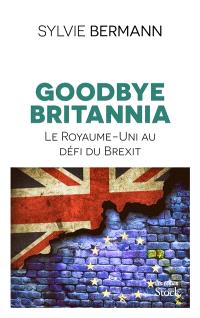
Sylvie-Agnès Bermann has a new book out, called Goodbye Britannia. Ms Bermann has a distinguished CV: graduate of the Sorbonne, studied China and spent time as a student in Beijing. She worked in the French Diplomatic Service in Beijing, Paris and Moscow. Her last job before retirement was as France’s Ambassador to Russia. She is clearly a woman of some considerable experience and skill.
Of more relevance here is the fact that she was French Ambassador in London between 2014 and 2017, a period which included the fateful referendum on Britain’s EU membership. During her years as a French Diplomat, she would, no doubt, couch the advice and opinions she gave in the most diplomatic language. No longer a career civil servant, she is free to speak her mind. And most interesting it is.
So let’s see what a straight-talking French diplomat has to say about les rosbifs. So far, I’ve only seen extracts quoted in the UK press, but they make for some excellent reading. Here’s a few:
(*I agree.)

It seems to me entirely appropriate that the Burns quotation at the start comes from a poem entitled To a Louse.
And it’s even more appropriate that the French for “a louse” is “un pou”.
Je n’ai rien à ajouter. (I have nothing to add.)
I had my first Covid jab earlier this week. It was everything you would expect from the NHS when given the resources to get on with the job.

From the phone call from my GP practice the previous Friday to the visit to the vaccination centre, it was all very well organised. Staff were friendly, helpful and professional, offering information and reassurance as needed. Clearly, some of the people at the centre were volunteers: you could tell by their sense of enthusiasm at having the opportunity to help others. And everyone there was working to a common purpose, so there was a clear sense of team spirit in the air.
Including the mandatory 15 minute rest (and observation for any adverse reaction) after the jab, the whole process took 20-25 minutes from start to finish. A fine example of public service at its best.
Back in 2016, I wrote a blog post called In Praise of Public Service Values. In it, I explain how certain public services should never be – or should never have been – privatised. The main reason I gave then was the commonality of purpose all the way through the public sector, from the top management through to the front-line staff. In a privatised service, there is some discontinuity between profit-maximising leaders and service-oriented junior staff. Priorities get blurred; messages get mixed.
I now recognise there is a second, powerful reason why public services should remain in the public sector. I have recently watched the 2020 Reith Lectures given by former Bank of England chief Mark Carney. In his first lecture, he speaks of the “moral hazard” of “commodification”. Experiments show that, in carrying out an activity with a clear moral purpose, people are disincentivised by financial gain. People are more effective when morality, rather than money, drives their actions.
A further danger of commodification is what Carney calls “flattening” of moral value or civic virtue. Once an activity is described solely in terms of money, in profit or loss, something of real human value gets lost. Good deeds become mere transactions; cynicism and boredom can creep in.
We should have learnt from the lessons of the 2012 London Olympics, when Serco’s failure to recruit sufficient “Olympic greeters” led to the army to be called in to help out. But this government didn’t learn. Perhaps the most deadly of the consequences of the failure to learn from past mistakes are the repeated failures over lockdowns: too late to impose, too soon to relax restrictions. Johnson and his gang are far too ready to listen to the bayings of the death squad of Tory backbenchers grotesquely misnamed the “Covid Recovery Group”.
It is extraordinary to think that, over 11 months into the pandemic, the Government has still not properly implemented border controls for people entering the UK. Failure to learn lessons from other countries’ approaches to quarantine and its enforcement is particularly ironic when “control of borders” was a key rallying cry of the prominent Leavers now running the country.
But a major government failure was to hand Test and Trace to the private sector, and specifically to friends of the Cabinet members – corruption on an eye-watering scale. Compare and contrast the spectacular failure of the £22bn privatised “NHS Test and Trace”. (The link in the last sentence leads to a page which lists 22, mainly private sector, companies involved: Serco and Sodexo are perhaps the most significant.) I’m not clear whether the list of 22 includes all the companies whom Serco and Sodexo have subcontracted work to.
I believe that one key underlying problem in using the private sector was the failure to use vital public health expertise in its design. The private sector dominated thinking was based upon the model of running call centres (for which the private sector has plenty of experience). What was overlooked was the public health expertise in the subtleties of the interpersonal relationships and sensitivities in cold calling people about health issues. Many of us see our health as an intensely personal matter and there was an understandable reluctance for “cold called” people to engage.
Finally, here’s the BMA’s view from last September giving the medical professions view on the many and varied shortcomings in over-reliance on the private sector.
As for accountability, my best estimate currently is this. Of the 110, 000 deaths to Covid so far, somewhere between 50,000 and 80,000 could have been avoided through better governance and decision-making. It would be a betrayal to those who died and their grieving families if this stark analysis were somehow forgotten. To govern is to be accountable.
As the country’s mood lifts, from fear and despair to hope and positive expectation of an end to the pandemic, I have a concern that that public opinion will fail to call to account the actions of this government over the past year. Repeated failure and disastrously poor decision-making vastly exceed the one thing we seem to have got right: vaccination, thanks to the “real” NHS. It would be grossly unfair for Johnson and co to be let off the hook over their lamentable performance overall.
It’s only two and a half weeks since my last post and there are three news stories that would be really big in their own right, all happening at the same time. Each one would produce an open-mouthed look of astonishment. And yet… I find myself strangely unable to gather the right words to describe my reaction to any of them.
They are: the UK reaching the end of the transition period and actually leaving the EU, the third national lockdown following shocking rises in Covid cases and deaths and Donald Trump inciting a mob to violent insurrection in the Capitol Building in Washington DC.

The UK ended its 47-year membership of the European Union at midnight Brussels time on New Year’s Eve. New Year celebrations were muted this year because of the pandemic. But, of course, there was no cause for celebration. Johnson had achieved something of an historic moment: the enactment of the first trade deal in recorded history that actually erected trade barriers rather than removed them. The UK now has trade deals with fewer countries now that when it was an EU member.
After end of year stockpiling and the usual traffic lull over the holiday period, stories are beginning to emerge of delays at ports on the Channel and Irish Sea. A common reason is lack of preparation by traders and hauliers and incomplete paperwork. Companies such as John Lewis, Debenhams, Waterstones, Fortum and Mason and M&S have either ceased or suspended sales into the EU (include Ireland, North and South), either because of the disruption or because they see it as no longer an economically viable proposition. And supermarkets report empty shelves in Northern Ireland.
Meanwhile, customers in the EU are finding VAT and customs charges demanded by their postal organisations for online purchases from the UK. Here’s an Irish perspective. It’s easy to predict that a lot of customers in EU countries will be deterred from placing orders from UK-based sites when online shopping. And, of course, as a third country airline passengers are being turned back at EU airports as our “plague island” status makes us no longer exempt from EU travel bans.
The real tragedy of all this is that every one of these problems were predictable – and predicted by those of us who wanted to remain in the EU.
Whilst the cabinet and Prime Minister were distracted by EU trade negotiations, cases of Covid-19 have been rising and rising. And all at a time when the government’s full attention should have been on policies and communications to reduce the spread of the virus. And so England finds itself in its third nationwide lockdown of the pandemic, announced last Monday with just a few hours’ notice.
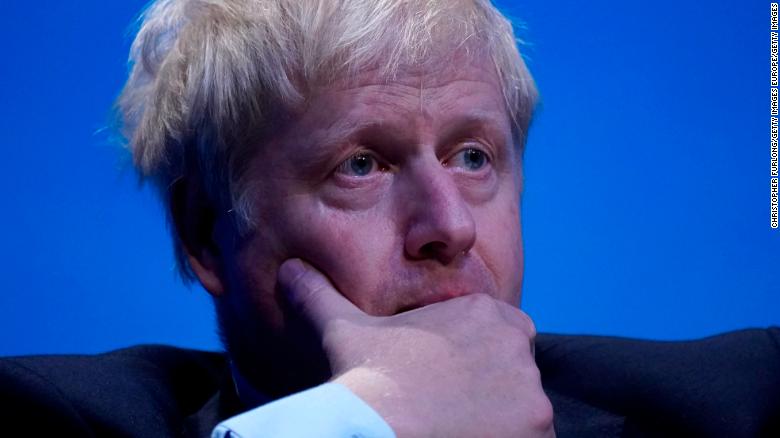
So, let’s just track back what has happened in recent weeks:
So, in summary, the Governments actions – and inactions – encouraged the virus to spread between families in the runup to Christmas, within families at Christmas, between families again on the one day of schooling and finally within families again from last Tuesday. Add to this the delays to Lockdown 1 in March and “Eat out to Help Out” in the summer, which kept Covid case numbers bubbling along at higher levels for the autumn that they need have been. Can anyone think of a worse possible way this could have been handled? I can’t.
And yet Johnson and Williamson are still in post. Parliament passed a vote of no confidence against Neville Chamberlain because he was so useless. He resigned and on May 10 1940, he was replaced by some other bloke with a name like an insurance company. The rest, as they say, is history.
So, how come only 43 percent in a very recent poll want Johnson to stand down? (Those wanting him to stay number nearly 40 percent. I don’t understand: what do these folk want him to do before they change their views? Slaughter all first-born? Whoops! That’s me gone.) As I’ve said before, we need a Government of National Unity.

And so to America, the “shining city on a hill” of democracy.
It’s only in the last few days that I’ve ever in my life had the following thought: that is now within the bounds of possibility that the USA will descend into a second Civil War. And that is a truly shocking thought!
I don’t think there’s any doubt now that Trump incited a mob to march on the Capitol and commit acts of violent insurrection. Impeach him tomorrow; simple as that. Get his stubby fingers off the nuclear codes. Immediately.
But the poison Trump spread will linger. It’s truly an awful prospect. We will no doubt return to this subject again, Meantime, good luck Joe Biden!
And yet the most frustrating thing is this. My words and those of professional commentators are just that. Words. I feel they won’t change anything. Words – reasoned argument – implies reason. Certainly Trump and a sinister cohort of his followers are way beyond reason. And this is all happening in a country with more privately-owned guns than people.
So we continue. With our words. For words are all I have. And Hope – for the best.
I write this on the day of the announcement about a trade deal between the EU and the UK. This post explores the twin themes: Thick and Fast and Thick and Slow. I will explain.
Now that we appear to have some sort of deal, we can expect one sure-fire thing: the lies will keep coming thick and fast. Johnson and his gang of no-hopers will try to convince us that it is a great deal, one which has been hard-fought and won thanks to the skills of the UK negotiating team. And it will all be bollocks.
The timing of the announcement is interesting, with no newspapers tomorrow (Christmas Day). But be assured that the usual suspects (Sun, Mail, Telegraph, Times, Express) will find space in their Boxing Day editions to spread even bigger lies than the government itself will do. Obviously, Johnson and co. will feed much of the stuff to the friendly media outlets.
The lunatic fringe on the Tory backbenchers (Master Francois and his ilk) are speaking of “star chambers” of tame lawyers who will check the “purity” of the agreement: to see if the small print accords with their delusional thoughts. And the big unknown will be Labour’s response. Worrying signals from Keir Starmer’s office in recent days seem to echo the phrase “a deal is better than no deal”. The honourable position for all Labour MPs is to abstain in the required Parliamentary vote.
One thing has been abundantly clear for four and a half years or more. Any deal with the EU will be worse for the country than EU membership. We must not allow the government to hide behind the smokescreen of the pandemic. Leaving the EU will make all of us poorer, slowly, year by year, estimated at a permanent loss of 2% a year off GDP growth. Certainly, the effects of gross mismanagement, procrastination and poor policies will continue to make Covid the bigger short-term shock. But the lasting, slow-burn damage will be leaving the European Union.

So, prepare to be inundated with an avalanche of lies from our elected leaders: they’ll be coming thick and fast.
By way of contrast, if you were to look for an epithet to describe every member of the UK Government, “thick and slow” would be a good one. Historians will one day look back in amazement and disbelief at our misfortune: to have the most incompetent government of modern times at a time of our greatest need for at least 75 years.
Thick: it would be invidious to try to rank the members of the Cabinet in order of stupidity. For sure, Stupid Boy Pike, a.k.a. one Gavin Williamson and Little Miss Pretty Petrifying, a.k.a. Priti Patel would rank near the bottom of the pile: “rank” being the operative word.
There are those who believe that the chancellor, Rishi Sunak, somehow stands above the pack. I disagree. Sunak is one of the country’s biggest problems. His failure to understand the impact of the pandemic on the poorest people – after all, his wife is richer than the Queen – or to implement consistent financial support for those losing their incomes cuts directly across attempts to control the spread of the virus. Millions of people are in such poorly paid and insecure jobs that they simply cannot afford to self-isolate when required. Sunak’s resistance to improving benefit payments to something closer to the European norm further compounds the problem.
Slow: We are in this mess now because of one of Johnson’s personality faults. He has a Trump-like desire to be liked and so has a pathological problem with decision making, particularly when it means being the bearer of bad news. Hence the last-minute U-turn on Christmas, the last of many – far too many – examples of delayed decision making.

But perhaps the most damning indictment of Johnson and his gang is their collective slow learning. It’s generally understood that the UK government was too slow in March imposing a lockdown, resulting in tens of thousands of unnecessary deaths. The same mistake was repeated in September, when scientists and Keir Starmer all urged the Prime Minister to impose a 2-week circuit breaker. Johnson failed to do so and we had a 4-week lockdown – with only partial success – 6 weeks later. And now we’ve just had the third repeat of the same basic “too late” decision making and ruining millions of people’s plans for Christmas into the bargain.
So the unmerited trumpet-blowing we can now expect over the EU trade deal also acts as a convenient distraction from the government’s continuing serious mishandling of the pandemic crisis.
I guess you need to be above a certain age to remember Victor Sylvester, bandleader and erstwhile king of ballroom dancing on British TV and radio. But fans of Strictly Come Dancing will no doubt also be familiar with the foxtrot pattern Slow, Slow, Quick Quick Slow. Change “quick” to “thick” and there you have it. That’s your government, that is.
Next slide, please…
With acknowledgement to Rob Newman and David Baddiel
The world – or our little bit of it – has recently become very strange indeed.
On the day when we have one genuinely excellent piece of news – the first vaccinations against Covid – we find ourselves on the brink of disaster – or worse. And which of those it will be is in the hands of a man with the attention span of a gnat and no discernible talents whatsoever. I refer, of course, to our Prime Minister and his theatrical 11th hour and 59th minute dash to Brussels.
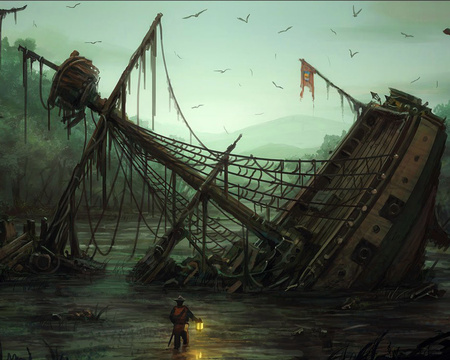
When I use the terms “disaster” and “disasterer”, I’m referring to the choice between Johnson’s putative feeble and thin trade deal with the EU and the bigger disaster of “no deal” (which Johnson dresses up as “Australian-style”). Choose your metaphor: Disaster or Disasterer, a Rock and a Hard Place, (for the classically-minded) Scylla or Charybdis; the Devil or the Deep Blue Sea, Dumb or Dumber. You choose: all of them worse than where we now are.
Apologists for leaving the EU have been banging on for years about something called “national sovereignty”. There is quite a good definition statement of this abstract concept to be found in this US website. In the abstract, this sounds like a good idea – as long as you don’t think too deeply about it. As far as we are allowed to know, at the time of writing, the issues still divide UK and EU negotiating positions seem to boil down to two things.
The first is our future theoretical desire to deviate from EU norms and standards, in state aid for UK companies, workers’ rights and consumer protection mainly. And the second is how any divergence is policed – and by whom. (Rumour has it that there’s a deal already hammered out for fish. Topical comparison: more people work at the Addenbrookes Medical Campus in Cambridge than in the whole UK fishing industry, but no matter, for now.)
To be honest, I have some instinctive liking for having these theoretical freedoms. Consider, for a moment, the restrictions of our day-to-day freedoms brought about by the Covid lockdown restrictions. There’s a kind of “lockdown in my head” feeling of frustration and unease flowing from those things I’m currently not allowed to do. (We’re in tier 2, by the way.) It’s a feeling that won’t quite go away: akin, I guess, to some form of mini-imprisonment.
But, in practice, life is not that much different from “normal” times. The amount of socialising we do these days is pretty minimal, Zoom meetings have replaced face-to-face ones and we do more shopping online. Furthermore, medical issues over the period from 3 years to 1 year ago meant that my activities were curtailed compared to my life before then. Our holiday plans have been much changed, but we still managed a weekend break in February (before Covid really struck the UK) and a week in a cottage in Wales in September. We’ve been relatively fortunate so far. But that “lockdown in my head” feeling is still there, in the background.
So I do “get” the instinctive desire to be “free”.

But now we must get real. As John Donne said in his 17th century Meditation XVII, “No man is an island”. The bald fact is that we live in a very interconnected world. Back in the 19th century, when Lord Palmerson was Foreign Secretary, Britain could flex its muscles and send in a gunboat to teach Johnny Foreigner a lesson. That was because Britain was indisputably the strongest nation on earth – and we threw our weight around. We had 10% of the world’s GDP; that’s now less than 2.5%.
Nowadays, we need collaboration with other countries, and our nearest neighbours in particular. 40% of our food is imported, mostly from the EU – frictionlessly until 31st December. Combatting transnational crime and terrorism needs good cooperation and easy transfer of data and intelligence: all under threat after the end of this year. The EU is the only entity so far on a global stage to challenge the overmighty power of companies like Google and Amazon. Britain alone will be powerless against abuse of dominant market monopolies.
Our supply chains (for example in motor manufacturing), our love lives and relationships, our holidays and trading by companies large and small have been built around frictionless movement of goods and people. From January 1st? For people, all that stops. For goods, we still don’t know.
By acting as the rogue state of Europe – for example, by breaking international law – we have poisoned the well of trust needed to smooth the flow of day-to-day interactions across borders. (I believe some sort of deal has been brokered so that we can withdraw the offending paragraphs from legislation going through Parliament – but it’s all a bit unclear as I write.)
So the prized concept of “sovereignty” is, in reality, illusory. This means Johnson and co. are chasing an illusion with no upsides in practical terms.
But there is a deeper psychological illusion lurking behind all this insanity. Leave extremists, like Johnson and Rees-Mogg, seem to have a different understanding of the concept of freedom itself. Look at the language they use. Behind it lies a mythological past dating back to the days before the Norman conquest in 1066. We learnt at school about the Battle of Hastings, the Domesday Book – how dare they write it all down to ease taxation? – and Norman castles all over the land, to oppress the local populations behind the safety of battlements and drawbridges.
This stuff cuts deep into our national psyche. The myth of a golden age of “free” Angles and Saxons lies beneath this yearning for the illusion of “sovereignty”. And I feel it is high time we let it go and face reality in the 21st century.
If Johnson does come back from Brussels with a deal, beware the lies which will be spun: world-class, heroically won or whatever. It will bring disruption, extra bureaucracy, shortages of food and medicine and lost jobs – to name a few. And don’t let the government hide behind the tribulations of the pandemic: these problems will be Tory Government-made and were avoidable.
So Keir Starmer must lead his party to abstain: on the positive, moral principle of “a plague on both your houses”. Let the government take the blame they deserve. At the end of the same John Donne poem mentioned above, we find the equally famous words: “Never send to know for whom the bell tolls; it tolls for thee”. Johnson take heed.

When the month ends, it will be “good riddance” to 2020: it’s been an awful year. Ring in the New Year by all means: the vaccines, at least, bring hope. But our status in the world will have been diminished mightily. A mournful chime for us all.